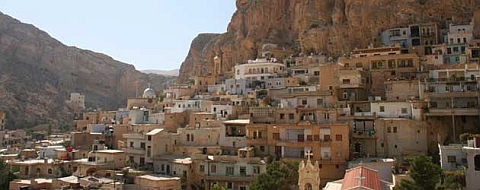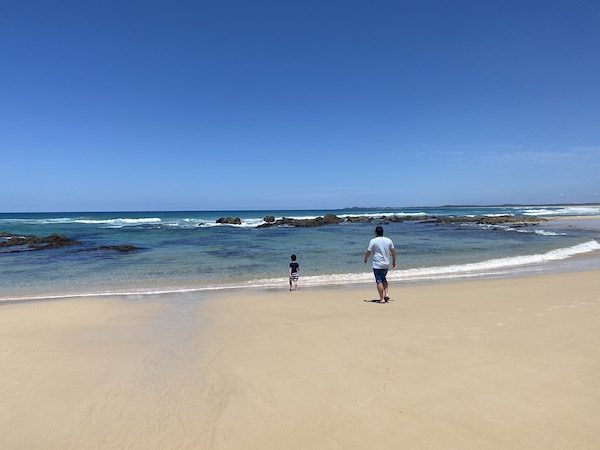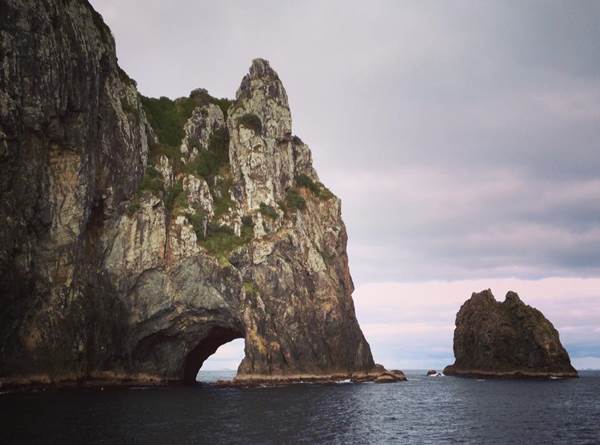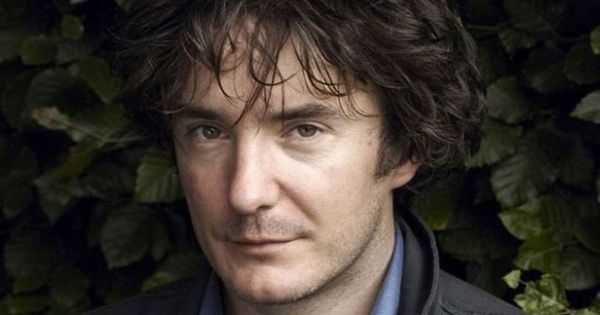
Maaloula, Syria – The City of Ancient Aramaic
 Maaloula, Syria – The City of Ancient Aramaic
Maaloula, Syria – The City of Ancient Aramaic
By Verity Twydale
Tucked away in the cleft of a mountain in the middle of the Syrian countryside lies a tiny Christian village. Admittedly, it’s an odd place to have a Christian village. Syria is a country that’s often mistakenly known for it’s antipathy towards anyone and anything beyond the Islamic faith. Yet not an hour northeast of Damascus lies Maaloula, the last place on earth where the language of Christ is spoken.
Travelling down from Krak de Chevaliers, the Crusader castle made famous by T.E Lawrence as ‘the best preserved and most wholly admirable castle in the world’, we stumbled upon Maaloula largely thanks to my pea-sized bladder. Having offended a petrol station attendant for not drinking the proffered tea – a huge insult in Syria – my partner was forced to explain to our baffled driver that the lady, in fact, needed to pee. Maaloula just happened to be the closest town and Jesus, thank you, a town with a toilet.
Nestled in the Qalamoun mountains 1500 metres above sea level, Maaloula is one of the most scenic villages in Syria. Maaloula, meaning ‘entrance’ in Aramaic, is historically the home of the First Martyr, St Takla, daughter of a Roman prince who was converted to Christianity by St Paul. The story goes that after St Takla’s pagan father learned of her conversion he sent his soldiers to execute her but each time she was miraculously saved. Fleeing to Syria, St Takla found herself confronted by the impassable Qalamoun mountains. After praying to God to save her, the mountain was miraculously split in half so she could escape her persecutors.
Arriving in Maaloula you feel this ancient history in the air. It’s pregnant with religion. There are crosses hidden in every cave and painted on every wall. Some are carved, some are lit at night, and more still are plain – just simple remembrances of the town’s pervasive Christianity. At the top of the mountains there’s another reminder; a statue of the Blessed Mother overlooking the village with her loving gaze. Christianity isn’t something that’s just talked about here, it’s in the air, the earth, and the very breath of each of its 2,000 inhabitants.
In Maaloula you won’t find the usual hustle and bustle of other Middle Eastern towns; there’s a vibe of pilgrimage. A place where adventurous Christians and Muslims alike can follow the steep mountain road up to the Monastery of St Takla, home to the miraculous waterfall created by God for the pursued martyr. As a visitor you have access to the water but since I’m not one to partake in any form of un-bottled water in any developing country – blessed or not – I found my peace instead in the cool courtyard overhung by a twisted fig tree that looked as old as St Takla herself.
After our short pilgrimage, we came across a small restaurant not 30 paces from the exit of the monastery. Even the energy in here had a subdued feeling, with contemplative locals enjoying their midday meal. Our waiter, who served us what was one of the best meals of our trip – a simple dish of warm hummus, fruity olive oil and baked flat bread – was only too keen to explain the history of the town. He even showed us his tattoo – his name written on his arm in ancient Aramaic – and spent a good half an hour trying to correct my sloppy Arabic handwriting, telling me to learn Aramaic instead. Young people, he said, have to protect their heritage. And with such passionate advocates in Maaloula, it appears, history will not be left to the dead.
Getting there: Maaloula is gaining popularity with tourists in Syria. You can get to the town in a day trip from Damascus, but if you’re going that far you are much better served doing a round trip – heading up to Krak des Chevaliers, spending a night there, then visiting Maaloula on your way back from Damascus. Tours can be organised with a private driver in a nice car for as little as $120 (not including accommodation) and well worth the splurge.






Wow!!
Ha, thanks Mike 🙂 I’d never heard of the place either but I’m so glad we stopped there. That’s the best part of travel though; those off the beaten track places that just pop up sometimes.
Hey Verity, loved the article. What an amazing place. The mixing of the religious history with the current day was excellent. I really enjoyed the piece.
How fascinating! Good find Verity, good find!
great post as usual!
Actually, Syria is quite tolerant of religious minorities, including Christians, partly because the ruling family is Alawite (a small sect allegedly based on Islam but very much less rigid, like the Druze in Lebanon). Where the Syrian rulers are very intolerant is towards political revolts, not religious groups. The U.S. likes to paint Syria with a very black brush, but a takeover of Sunni or Shia Muslims would likely lead to a country like Iran. Our choice isn’t necessarily between good and bad, but between bad and even more bad. Personally, I’ll take Assad over the Muslim Brotherhood, so I am glad you have written about this city and its Christian community.